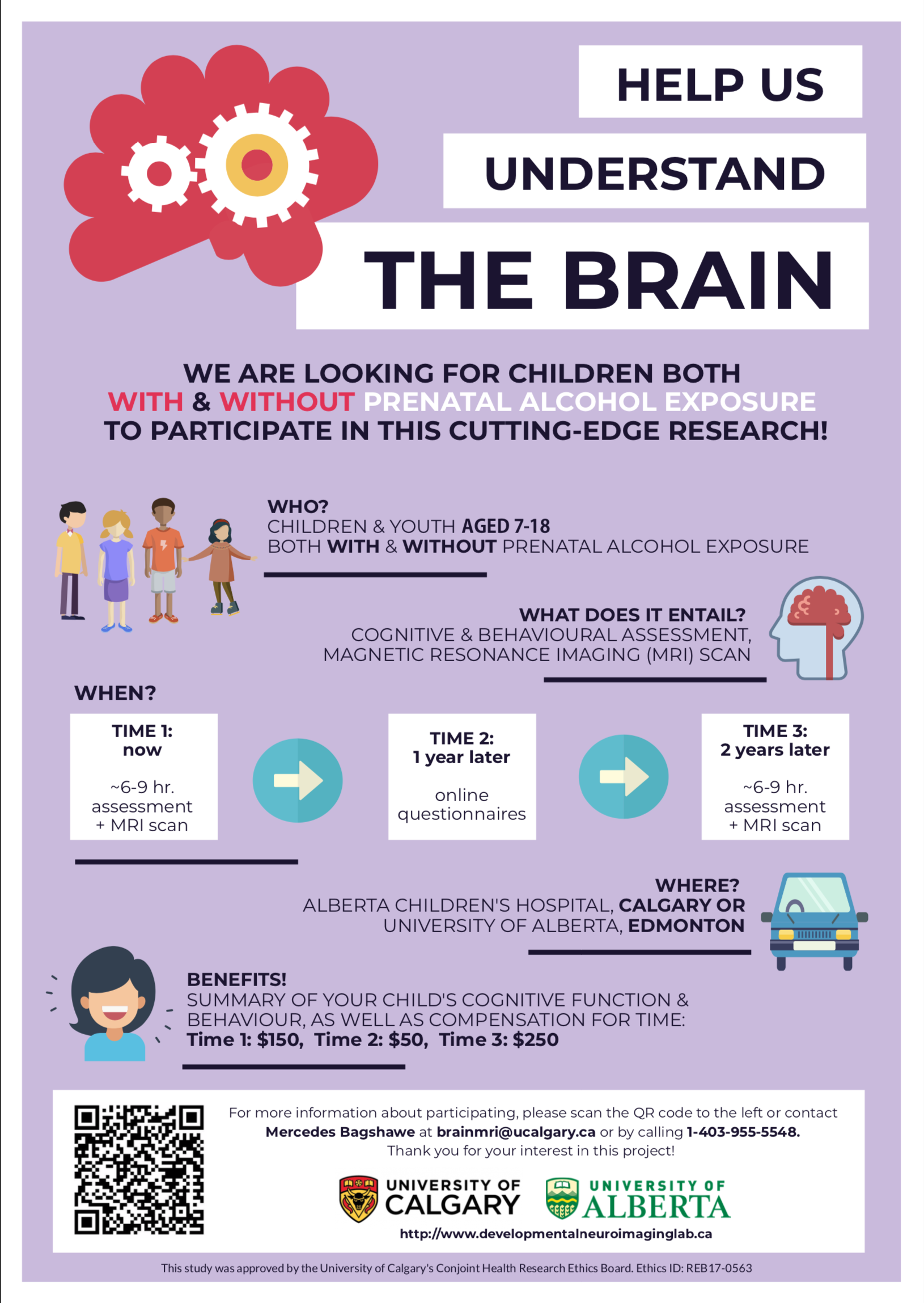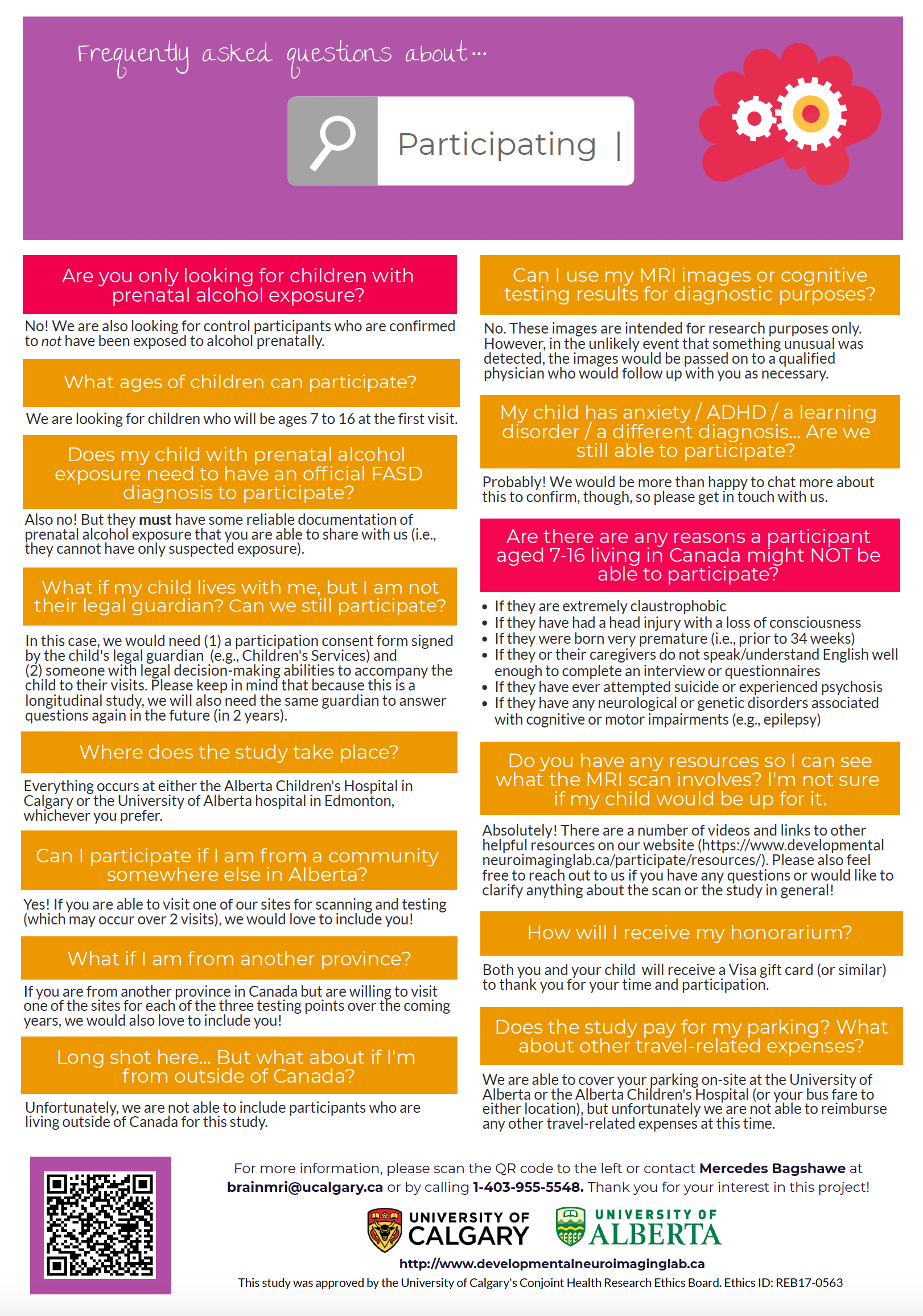Participate Brain Development in Children and Youth with Prenatal Alcohol Exposure (PAE)
Fetal alcohol spectrum disorder (FASD) is caused by prenatal exposure to alcohol (PAE), and affects 4% of individuals in Canada. Key features of FASD are learning, growth and behaviour problems, and most people with FASD (>90%) also have mental health problems. Depression and anxiety are among the most common. However, treatments for depression and anxiety are much less likely to be effective in individuals with PAE. This is, in part, because we do not understand the brain differences in youth PAE, and how these underlie mental health difficulties. A better knowledge of brain development in children and youth with PAE, and how brain features are related to mental health symptoms, would enable us to target treatments to the right time, place, and individual. *We are also recruiting control participants with no alcohol exposure
Jump to Section
Information Criteria Participation FAQ
Criteria
He or she must be,
Aged 7-18 years
Have confirmed/documented heavy prenatal exposure to alcohol or be diagnosed with FASD,
OR confirmed absence of alcohol exposure
Able to speak/understand English
Able to lie still for approximately 20 minutes (while watching a movie)
Able to wear ear plugs or headphones
He or she must not,
Have been diagnosed with a neurological or neurodevelopment disorder including autism, cerebral palsy, major intellectual disability, epilepsy; major medical illnesses, congenital abnormalities; genetic disorders associated with motor or cognitive disabilities.
ADHD, learning disabilities and language delay are OK.
Have had a major head trauma
Have been born premature (<34 weeks) or experienced fetal distress.
In addition, for safety reasons, we will not be able to include children who,
Have certain metal implants or metal dental devices (check with us regarding eligibility)
Are severely claustrophobic
Participation
Time 1: 1st Visit ( ~1-2 days)
~4hr Cognitive and Behaviour Assessment & Magnetic Resonance Imaging (MRI) Scan
Time 2: (1 year later)
You will be asked to complete online questionnaires
Time 3: 2nd Visit ( ~1-2 days, 2 Years after Time 1)
~4hr Cognitive and Behaviour Assessment & Magnetic Resonance Imaging (MRI) Scan
